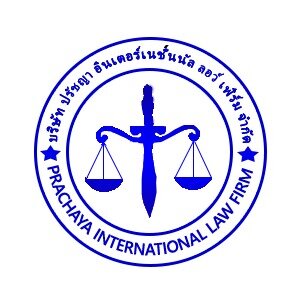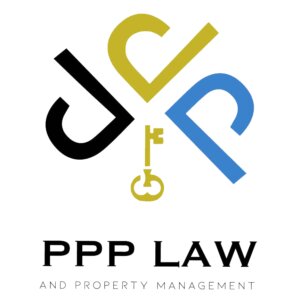Best Mortgage Lawyers in Huai Khwang
Share your needs with us, get contacted by law firms.
Free. Takes 2 min.
Free Guide to Hiring a Real Estate Lawyer
List of the best lawyers in Huai Khwang, Thailand
About Mortgage Law in Huai Khwang, Thailand
A mortgage in Huai Khwang, which is a busy district within Bangkok, Thailand, is a legal agreement that allows a lender to secure a loan by obtaining an interest in real property owned by the borrower. The borrower retains ownership but if they default on the loan, the lender has the legal right to take and sell the property to recover the debt. Mortgage law in Thailand, including Huai Khwang, is primarily governed by the Civil and Commercial Code (CCC) and relevant regulations from the Land Department. Understanding how mortgages work locally is essential, especially as property transactions often involve unique legal procedures specific to Thailand.
Why You May Need a Lawyer
There are several situations in which professional legal advice for mortgages in Huai Khwang is crucial. You may need a lawyer if you are purchasing property with borrowed funds, refinancing an existing mortgage, facing disputes with lenders, or experiencing difficulties meeting loan obligations. Lawyers can review your contracts, ensure compliance with local laws, explain your rights and obligations, and represent you in negotiations or disputes. If you are a foreigner or a business with complex property interests, legal guidance becomes even more important due to additional requirements and restrictions.
Local Laws Overview
The key legal aspects of mortgages in Huai Khwang reflect the broader framework of Thai property law. Mortgages must be registered at the local Land Office to be valid. Only immovable property, such as land and buildings, can be mortgaged. The contract must be in writing and signed in presence of a Land Officer. Foreclosure and enforcement processes in the case of borrower default are strictly regulated and can involve court procedures. Foreigners face significant restrictions on land ownership but may hold interests in condominiums under certain conditions. Local regulations from the Huai Khwang Land Office may also set specific administrative requirements or procedures for registering a mortgage.
Frequently Asked Questions
What is a mortgage in Thailand?
A mortgage is a legal agreement that grants a lender security over property, such as land or buildings, as collateral for a loan. If the borrower defaults, the lender may seize or sell the property to recover the loan amount.
Can foreigners mortgage property in Huai Khwang?
Foreigners generally cannot mortgage land, but they can mortgage condominium units under certain conditions. Mortgaging other immovable property is heavily regulated, and expert legal advice is advised for foreign nationals.
How is a mortgage registered?
The mortgage must be registered at the local Land Office where the property is located. The process involves a written agreement, supporting documents, and payment of a registration fee.
What happens if I default on my mortgage?
If you default, the lender has the right to initiate foreclosure proceedings through the court. The property can be sold at auction to satisfy the outstanding debt.
Can I sell mortgaged property?
You can sell your property with the lender’s consent, but the mortgage must be settled or transferred to the buyer at the time of sale.
What are the typical interest rates and terms?
Interest rates on mortgages vary depending on the lender and the type of loan. Terms are typically between 10 to 30 years, subject to negotiation and credit approval.
Are there government programs for mortgages?
The Government Housing Bank and some other agencies may offer mortgage programs for eligible applicants, usually citizens or permanent residents. Eligibility criteria apply.
How much does it cost to register a mortgage?
Registration fees at the Land Office are charged at a standard rate, often 1 percent of the mortgage amount for private lenders. Different rates may apply for government financial institutions.
What documents are needed for mortgage registration?
You will need the property title deed, identity documents, the written mortgage contract, lender’s approval, and payment evidence for the registration fee.
Do I need a lawyer for a mortgage transaction?
It is strongly recommended to consult a lawyer, as they can help protect your interests, ensure all legal requirements are met, and assist with negotiation and documentation.
Additional Resources
- Huai Khwang District Office: Provides local administrative support and guidance on property matters.
- Bangkok Land Office (Huai Khwang branch): Handles mortgage and ownership registrations in the district.
- Government Housing Bank (GH Bank): Offers mortgage financing options and information for Thai citizens and residents.
- Lawyers Council of Thailand: Can help you find licensed legal professionals specializing in property and mortgage law.
- Ministry of Justice: Offers general legal information and resources about property laws in Thailand.
Next Steps
If you need assistance with a mortgage in Huai Khwang, start by gathering all relevant documents such as property deeds, financial statements, and any agreements with lenders. Consult a licensed Thai lawyer with experience in real estate and mortgage law to review your situation. Prepare to visit the Huai Khwang Land Office for any required registrations or clarifications. If you are a foreign national or dealing with complex transactions, ensure your lawyer is familiar with regulations affecting foreign ownership or multi-party agreements. Stay informed by using resources from local governmental offices, and do not sign any contracts or agreements until you understand all legal implications and have secured proper legal counsel.
Lawzana helps you find the best lawyers and law firms in Huai Khwang through a curated and pre-screened list of qualified legal professionals. Our platform offers rankings and detailed profiles of attorneys and law firms, allowing you to compare based on practice areas, including Mortgage, experience, and client feedback.
Each profile includes a description of the firm's areas of practice, client reviews, team members and partners, year of establishment, spoken languages, office locations, contact information, social media presence, and any published articles or resources. Most firms on our platform speak English and are experienced in both local and international legal matters.
Get a quote from top-rated law firms in Huai Khwang, Thailand — quickly, securely, and without unnecessary hassle.
Disclaimer:
The information provided on this page is for general informational purposes only and does not constitute legal advice. While we strive to ensure the accuracy and relevance of the content, legal information may change over time, and interpretations of the law can vary. You should always consult with a qualified legal professional for advice specific to your situation.
We disclaim all liability for actions taken or not taken based on the content of this page. If you believe any information is incorrect or outdated, please contact us, and we will review and update it where appropriate.










